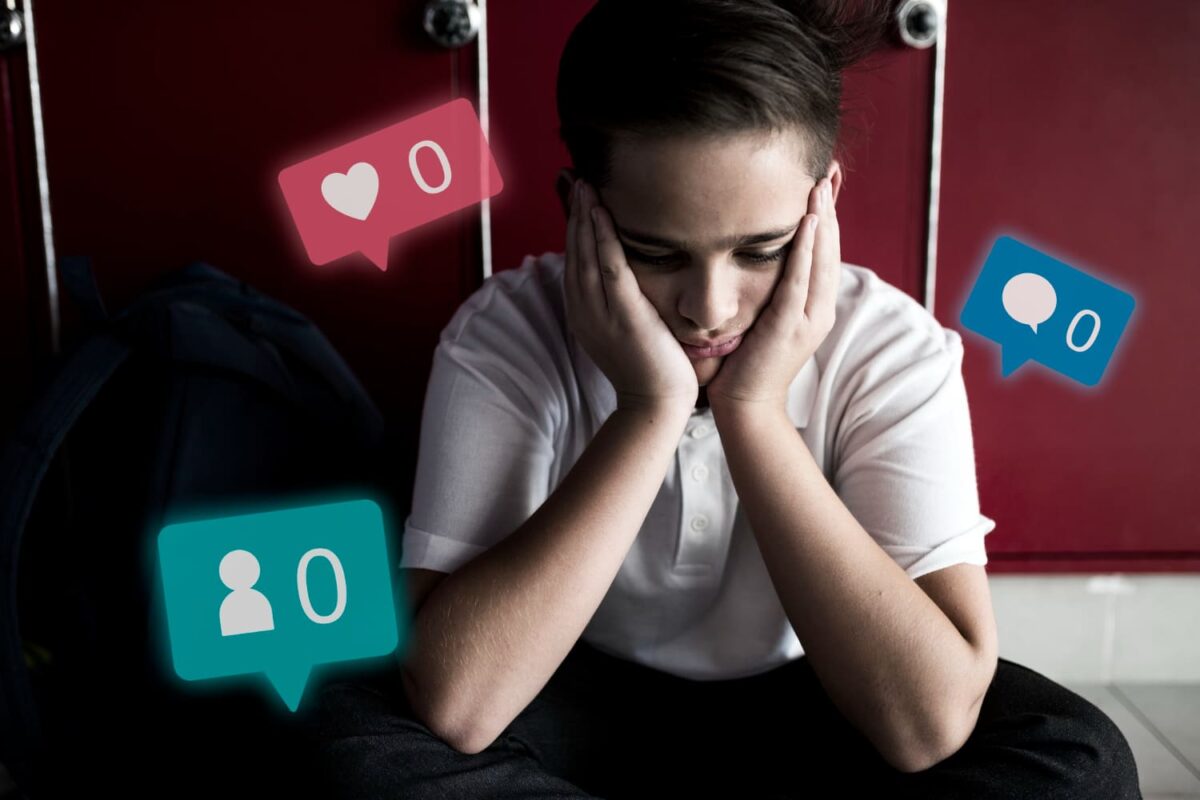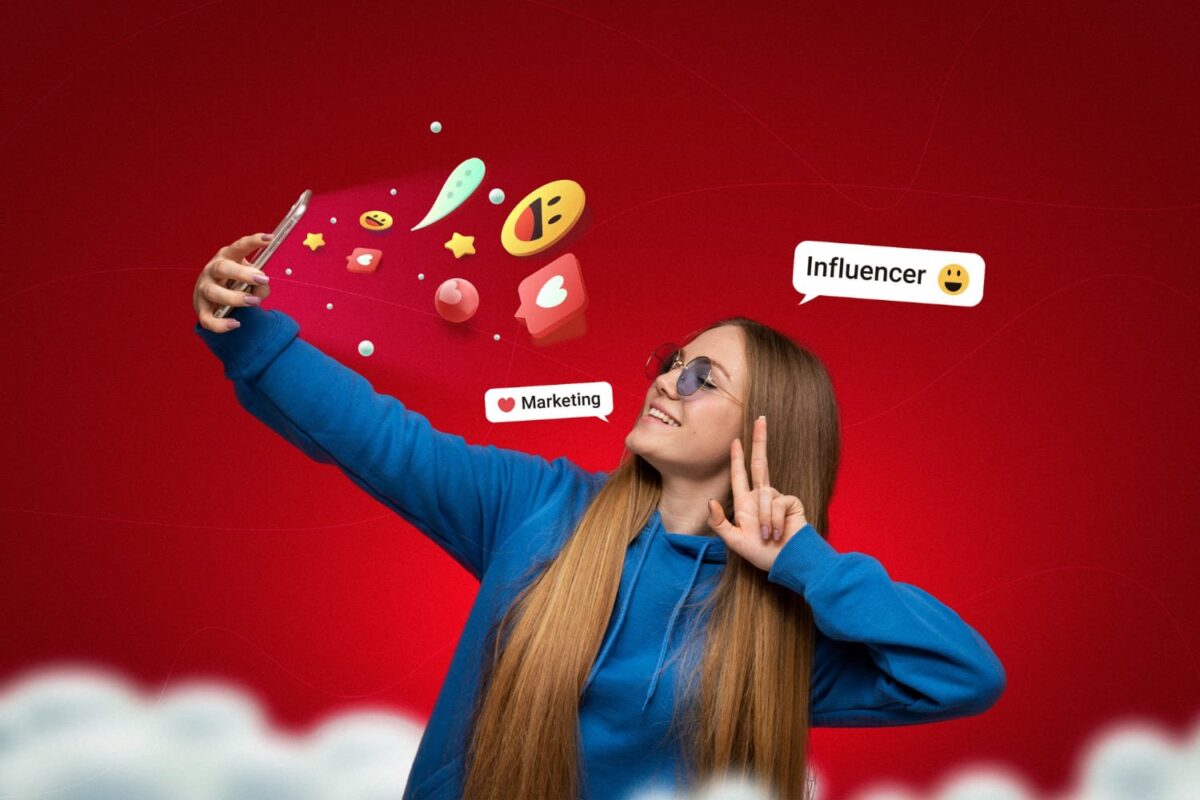According to psychology experts, as many as 5 to 10% of Americans meet the criteria for social media addiction. The addictive use of social media can lead to impairments in other important life areas and can affect the reward centers of our brain in a similar way as drugs.
In this blog post, we will explore the causes and effects of social media addiction and provide tips on how to prevent it.
What is social media addiction
Social media addiction refers to a condition where an individual becomes excessively dependent on social media platforms to the extent that it interferes with their daily activities and overall well-being.
People with social media addiction may spend an excessive amount of time on social media, even when it negatively impacts their relationships, work, and personal life.
Social media addiction can have negative consequences on an individual’s mental and physical health, including decreased productivity, increased stress and anxiety, and disrupted sleep patterns.
It is important for individuals who suspect they may have a social media addiction to seek professional help and support to address their behavior.
Social media addiction statistics
Social media addiction is a growing concern, and there are several statistics that demonstrate the scope of the issue:
- According to a 2023 survey by the Pew Research Center, around 69% of adults in the United States use social media.
- A 2023 study by Digital Information World found that people spend an average of 2 hours and 25 minutes per day on social media platforms.
- The same study found that 10% of people spend more than 4 hours per day on social media.
- A 2023 survey by Common Sense Media found that 50% of teenagers in the United States feel addicted to their mobile devices.
- The same survey found that 72% of teenagers feel the need to respond to notifications immediately, regardless of what they are doing.
- A 2023 study published in the Journal of Medical Internet Research found that higher levels of social media use were associated with increased levels of depression and anxiety.
- Another study published in 2023 in the journal Addictive Behaviors found that social media addiction was associated with increased symptoms of attention-deficit/hyperactivity disorder (ADHD).
These statistics highlight the prevalence and potential negative consequences of social media addiction, underscoring the importance of addressing the issue.
It is important for individuals to monitor their social media use and seek help if they feel they may be developing an addiction.
Signs and symptoms of social media addiction
Here are some common signs and symptoms of social media addiction:
- Spending excessive amounts of time on social media
- Feeling anxious or irritable when unable to access social media
- Neglecting personal responsibilities in favor of using social media
- Continuously seeking validation through likes, comments, and shares
- Preoccupation with social media
- Disrupted sleep patterns
- Increased stress and anxiety
It’s important to note that while many people use social media frequently without developing an addiction, if an individual notices these signs and symptoms in themselves or someone they know, it may be time to seek professional help and support.

Causes of social media addiction
The causes of social media addiction can be complex and multifaceted, but some possible factors that contribute to its development include:
- Dopamine release
- Fear of missing out (FOMO)
- Social comparison
- Loneliness and social isolation
- Psychological factors
- Accessibility
It’s important to note that social media addiction is a complex issue and may have multiple contributing factors.
Addressing the underlying causes of addiction and seeking professional support can be helpful in managing and overcoming addiction to social media.
Dopamine and social media
here are some key points about dopamine and social media addiction:
- Dopamine is a neurotransmitter associated with pleasure and reward.
- Social media use can trigger the release of dopamine in the brain, creating a cycle of craving and reward-seeking behavior.
- Receiving likes or other forms of engagement on social media can activate the brain’s reward center, leading to increased dopamine release.
- This reinforcing loop can create a sense of addiction or dependence on social media.
- Excessive social media use can lead to over stimulation of the brain’s reward system, potentially leading to addiction or other negative consequences.
- It’s important for individuals to be mindful of their social media use and seek help if they feel they may be developing an addiction.

Effects of social media addiction
Here are some possible effects of social media addiction:
- Decreased productivity
- Disrupted sleep patterns
- Increased stress and anxiety
- Strained relationships
- Negative impact on mental health
- Physical health problems
- Addiction to other substances or behaviors
It’s important to address social media addiction as it can have negative consequences on an individual’s personal and professional life, as well as their physical and mental health.
Seeking professional help and support can be helpful in managing and overcoming addiction to social media.
Treatment of social media addiction
The treatment of social media addiction can involve a combination of strategies, including:
- Setting boundaries
- Behavioral therapy
- Cognitive-behavioral therapy (CBT)
- Mindfulness training
- Family therapy
- Group therapy
- Technology detox
It’s important to note that the treatment of social media addiction is highly individualized and may involve different strategies for different people.
Seeking professional help from a therapist or addiction specialist can be helpful in developing a personalized treatment plan for social media addiction.
Tips for social media addicts
Here are some tips for social media addicts who want to reduce their social media use:
- Set goals: Set clear goals for how much time you want to spend on social media each day and track your progress.
- Create a schedule: Set specific times of day to check and use social media, and stick to this schedule as much as possible.
- Turn off notifications: Turn off notifications for social media apps to avoid distractions and reduce the urge to check social media.
- Unfollow or mute accounts: Unfollow or mute accounts that trigger negative emotions or contribute to excessive social media use.
- Find alternative activities: Find alternative activities to engage in when the urge to check social media arises, such as reading, exercising, or spending time with friends and family.
- Take a break: Take a break from social media for a certain period of time, such as a week or a month, to reevaluate your relationship with social media and develop healthier habits.
- Seek support: Seek support from friends, family, or a mental health professional who can provide accountability and support as you work to reduce your social media use.
It’s important to remember that reducing social media use can be a difficult process, and it may take time to develop healthier habits.
Be patient with yourself and celebrate small victories along the way.

Conclusion of social media addiction
In conclusion, social media addiction is a growing concern that can have negative effects on an individual’s personal and professional life, as well as their physical and mental health.
The addictive nature of social media can be attributed to factors such as dopamine release, fear of missing out, social comparison, and accessibility.
Addressing social media addiction can involve setting boundaries, seeking professional help, and developing healthy habits such as mindfulness and alternative activities.
It’s important for individuals to be mindful of their social media use and seek help if they feel they may be developing an addiction.
While social media can provide many benefits, it’s important to use it in moderation and maintain a healthy balance between online and offline activities.
By developing awareness of our social media use, we can cultivate a healthier relationship with technology and prioritize our mental and physical well-being.
Related topic: Technology addiction













